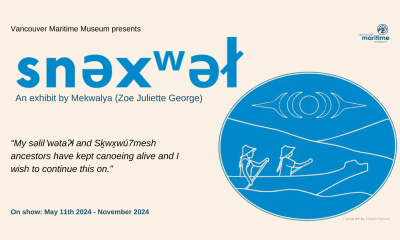Canada News
BC court decision on private health care is inconsistent and should be appealed

Canada is an anomaly among our allies in the Organization for Economic Co-operation and Development who have both functioning public and independent health care systems. (File photo: Hush Naidoo/Unsplash)
An important case for patients and health care access in Canada was released on September 10, 2020, and it has created some glaring inconsistencies in the law that will need to be resolved on appeal.
The case of Cambie Surgeries v British Columbia was brought by the Cambie Surgical Centre, a private surgery clinic in Vancouver, and four patient plaintiffs who sought an answer to a simple question: can the government prevent patients from paying for their own health care at independent non-government clinics if government hospitals are failing to perform medically necessary surgeries within the maximum acceptable wait times?
Unfortunately for both patients and for the value of legal consistency, the trial judge held that the answer is yes.
Nothing in Canada’s Constitution requires the government to provide medical care let alone create a government monopoly on health care or provide health care on specific timelines. The case is not about whether Canada must have a universal health care system. Every party involved in the litigation agrees that the public health care system is important and should be preserved and improved.
Rather, the patients and physicians involved in this case have argued that the government system is failing patients by leaving them to languish on long wait lists at great cost to their health. It is an infringement on patients’ Charter-guaranteed right to life and security of person to restrict them from going outside the government system to meet their health care needs when the government system is failing.
Health outcomes worsen the longer it takes to treat them. For example, one of the pediatric patient plaintiffs in Cambie waited more than four times the maximum acceptable wait time for a surgery to repair a severe curvature in his spine. The curvature progressed while he waited, which led to a far riskier surgery that ultimately left him paralyzed and in a wheelchair for life.
The trial judge in Cambie agreed that the serious wait times and the ban of alternative care amount to a violation of the Charter-protected right to security of person. However, the judge found that the denial of this right is consistent with the principles of fundamental justice.
On its face, this is a bitter pill for patients like the boy who is now paralyzed after his unacceptably long surgical wait time.
It is fundamentally unjust that a child would be confined to a wheelchair for life in the name of an ideology that demands government have a monopoly on healthcare. Especially when the government has proven to be incapable of providing timely care to thousands of patients. The statistics in the litigation show that in BC there are over 30,000 patients each year who don’t receive surgeries within the government’s own maximum acceptable wait times.
And the monopoly requirement is wholly unconnected to the goal of preserving the public system. Independent clinics have existed in BC for over 20 years, and there has been no evidence of harm to the public system during that time. Canada is an anomaly among our allies in the Organization for Economic Co-operation and Development who have both functioning public and independent health care systems. In fact, the Commonwealth Fund Report indicates that these other western countries do a better job of providing timely health care than Canada does.
Do the concepts articulated by the majority justices, that life and security of person are compromised by long wait times, apply throughout Canada? Or are patients in Quebec entitled to more rights than patients in British Columbia?
The trial decision also jostles uncomfortably with Supreme Court of Canada precedent. In Chaoulli v Quebec, the Supreme Court considered a challenge to the Quebec prohibition of private medical insurance. In this respect, the Chaoulli case dealt with the same question as Cambie. In Chaoulli, the Court was split, and ultimately struck down the Quebec prohibition. Three of the justices held that the prohibition was an unjust infringement on life and security of person guaranteed under the Charter. A fourth justice held that the prohibition was a violation of a similar provision the Quebec Charter of Human Rights and Freedoms guaranteeing the right to “personal inviolability.” This is a Quebec civil law concept about the sanctity of the physical person, though in practice it is quite similar to the Canadian Charter’s protection of security of person.
The trial judge in Cambie departed from Chaoulli despite glaring similarities. Ultimately, the Chaoulli decision will need to be reconciled. Do the concepts articulated by the majority justices, that life and security of person are compromised by long wait times, apply throughout Canada? Or are patients in Quebec entitled to more rights than patients in British Columbia?
The Cambie decision has also raised serious questions about how the section 7 security of person guarantee in the Charter is to be interpreted. Whether a law is inconsistent with the principles of fundamental justice requires an analysis of whether the law is overbroad, grossly disproportionate or arbitrary.
It’s hard to square the finding that laws restricting access to independent care in Cambie are not overbroad. The government claimed these laws are necessary to safeguard the public system, despite no evidence of any adverse impact on that system.
There is also a close parallel between the unconstitutionality of a government prohibition against seeking care and the Supreme Court’s findings on government prohibitions in other cases. A series of cases, Bedford, Carter and Insite, all dealt with government prohibitions that did not directly harm individuals but nevertheless were struck down because the prohibitions caused harm indirectly.
In Bedford, the Supreme Court held that prohibitions on bawdy houses and other provisions of the criminal code were an unjustified infringement of the right to security of person. The prohibitions prevented the implementation of safety measures that could protect prostitutes from violent clients.
In Carter, the Supreme Court held that a criminal code prohibition against physician-assisted suicide was a violation of security of person. And in PHS Community Services Society (often referred to as the Insite decision), a supervised injection site had an exemption from certain drug laws. The Supreme Court found that the revocation of that exemption (which would have had the effect of shutting down the supervised injection site) violated the security of person of the people using drugs at the site.
Like in those three cases, patients in British Columbia are being indirectly harmed by the government’s prohibition of actions individuals may take to ameliorate their own conditions. Here, the prohibition at issue is the provisions of the Medicare Protection Act, which amount to a ban on private health care. When the government system is failing to meet the needs of patients, the government violates patient rights by prohibiting those patients from seeking alternatives.
The inconsistencies between Cambie and these three cases, in addition to its inexplicable divergence from Chaoulli, need resolution. Until then, patients remain at risk.
This article first appeared on Policy Options and is republished here under a Creative Commons license.





















